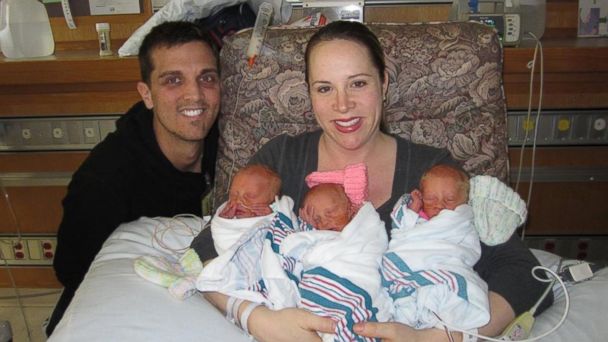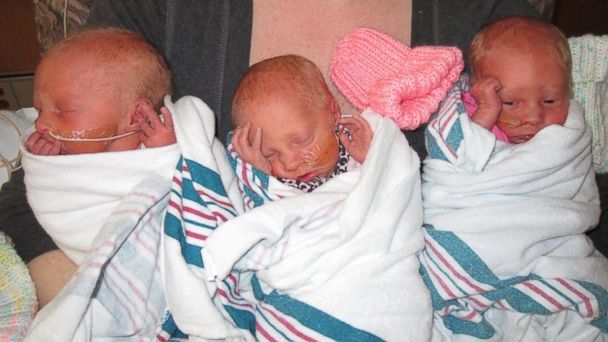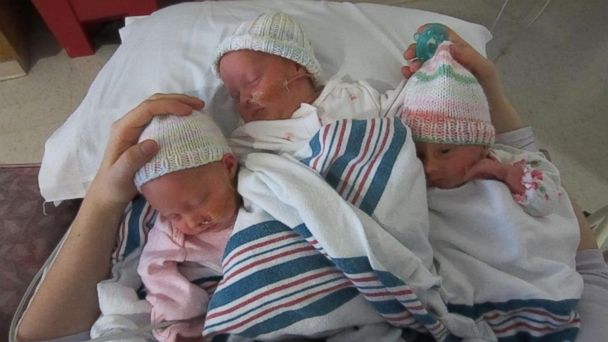Rare Identical Triplets Have Mom Thrilled and Nervous
New mothers often feel overwhelmed when they bring a new baby home for the first time, but multiply that by three.
"Of course I feel very happy, but at the same time I am scared. I have never even had one kid before," Allison Rhoa said of her nearly 3-week-old identical triplet daughters. "It's (taking care of them) basically non-stop. You know, by the time I am done feeding the third baby, 15 minutes later it's times to feed the first one."

(Courtesy Allison Rhoa)
Naturally born triplets happen only in about 1 in 100,000 births, a number so small that it not only shocked Allison and Wesley Rhoa at their first ultra sound, but also the doctors and technicians who gave them the news.
"I went into my first ultra sounds and I just expected to see one. Then the technician said to my husband that he better sit down," Rhoa said. "I was just in total shock I just kept smiling and my husband just looked worried. I think the technician was more excited than we were (at the time), just because it is so rare."

(Courtesy Allison Rhoa)
The triplets - Ava Grace, Avery Hope and Alyssa Faith - were born on Feb. 5 at Abington Memorial Hospital in Abington, Pa., just 33 weeks into Rhoa's pregnancy. Although they can breathe on their own, they require a feeding tube.
Dr. Frank Craparo, the Chief Division of Maternal Fetal Medicine at Abington Memorial Hospital, is one of the doctors taking care of Rhoa.
"We have had at least two sets (of identical triplets) that come to mind over a 20 year period," Craparo told ABC News. "Most triplets that happen [these] days are because of fertility treatments, but they did this all on their own."

(Courtesy Allison Rhoa)
Rhoa says she is worried about the triplets coming home and affording their many needs.
"I did work until the day before I had them. As of right now, I don't know, I can't really afford to stay home, so that is something I am really struggling with right now," Rhoa said.
The triplets are thriving and doctors say little Ava may be able to come home next week. Her two sisters will be able to leave the hospital the following week.
"When they come home I am going have to figure out how to feed two at a time, or else I won't be able to sleep," Rhoa said.